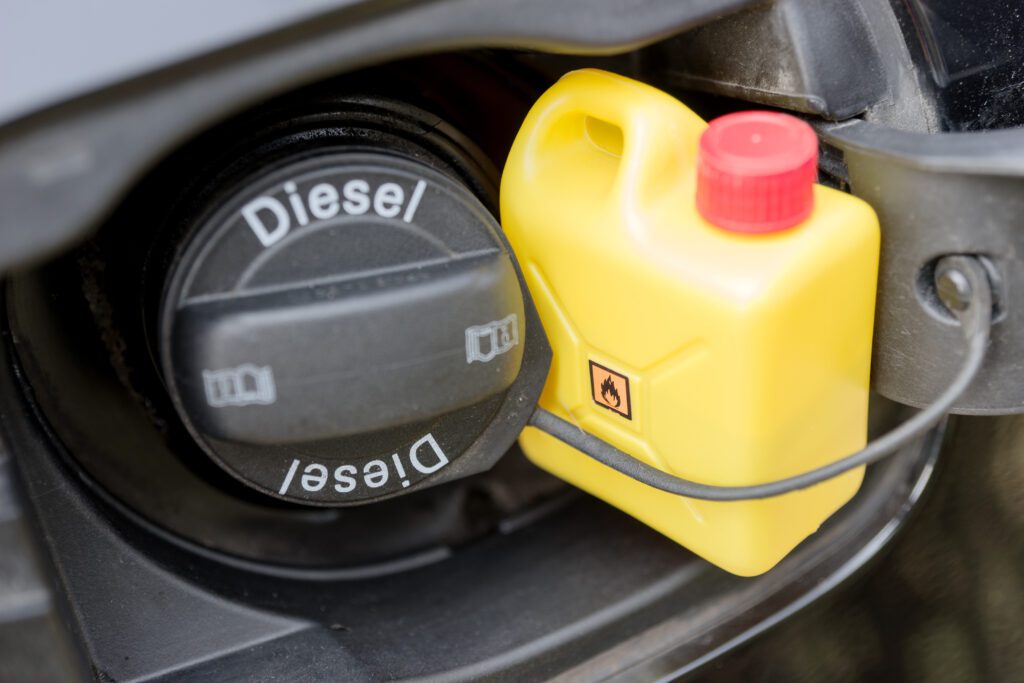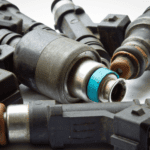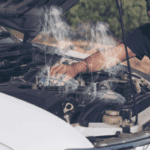Do car octane boosters work? This is a question that many car enthusiasts have been asking for years. With so many products on the market promising to improve performance and fuel economy, it can be hard to know which ones are worth investing in. In this article, I will explain octane boosters and whether or not they deliver on their promises.
First, let’s talk about what octane is and why it matters. Octane measures a fuel’s ability to resist knocking during combustion. Knocking occurs when the air/fuel mixture in the engine detonates prematurely, causing a sharp knocking or pinging sound and damage to the engine. Higher-octane fuels are less likely to experience knocking, which is why many high-performance cars require premium gasoline.
What Is an Octane Booster?
An octane booster is an additive mixed with gasoline to increase its octane rating. The octane rating is a measure of a fuel’s resistance to detonation, which is the premature ignition of fuel in the engine.
All octane boosters contain chemicals such as methylcyclopentadienyl manganese tricarbonyl, alcohol, kerosene, toluene, xylene, or ethanol. When these chemicals are added to gasoline, they increase the overall octane rating of the fuel, leading to better engine performance.
It is important to understand that not all vehicles need an octane booster. Most modern cars are built to run on gasoline with an octane rating of either 87 or 91, so running a higher octane fuel doesn’t do what you may hope it does. However, high-performance cars with high-compression engines may need gasoline with a higher octane rating to prevent engine knock, hence the need to boost the octane rating.
When Should You Use Octane Boosters?
There are times when you should consider using an octane booster:
- If you own a car that requires a higher octane rating than what is available at your local gas station. An octane booster can help with the deficit.
- If you own an old car designed to run on leaded fuels, octane boosters can help the engine run.
- If your high-performance vehicle is not running efficiently or you can hear the engine knocking, an octane booster will help the engine recover any lost horsepower by making it run smoother.

How to Use Fuel Octane Boosters
Using octane boosters is simple. You just pour it into the gas tank; anyone can do it. However, here are a few tips to get the most out of them:
- Read the instructions -Different fuel octane boosters have different instructions, so it’s important to read the label carefully before using it. Make sure you understand how much to use and how to add it to your fuel tank.
- Choose the right octane level – Fuel octane boosters have different strengths, so choosing the right one for your vehicle and fuel is important. For example, if your car uses 98 octane fuel and can only get 91, you will need the highest-strength octane booster on the shelf.
- Add the booster to an empty tank – Octane boosters work best when mixed evenly with gasoline or petrol. Adding it to a nearly empty tank and then immediately filling your gas tank after will allow the booster to mix with the fuel as you fill it up.
- Don’t overuse the booster – Using too much octane booster or using it too frequently can harm your engine. This comes back to reading the instructions, but it’s important to follow them carefully and not overuse the product.
Are Fuel Octane Boosters Safe to Use?
I can confidently say that fuel octane boosters are safe to use when used correctly.
One of the main concerns people have is that using an octane booster can cause engine damage. While it is true that using the wrong type of booster or using too much of it can cause irreversible engine damage, using a high-quality, reputable brand in the correct amount should not cause any damage.
It is also worth noting that some fuel octane boosters may be unsafe for specific vehicles or engines. It is important to check the octane booster bottle to ensure it is compatible with your vehicle.
How Often Should You Use an Octane Booster
The frequency of use depends on your specific needs. If you have a high-performance car that requires a higher octane rating than what is available at your local gas station, you may need to use an octane booster every time you fill up your tank. Some octane boosters claim to have long-lasting effects, so you may not need to use them as frequently as every tank.
However, if you only use your car for daily commuting and don’t require a higher octane rating, then using an octane booster once every few months is sufficient.
Frequently Asked Questions
What Are the Negatives of Octane Boosters?
One potential negative is that octane boosters can be expensive, especially if you need to use them frequently. Some octane boosters may also contain harmful chemicals that can damage your engine over time.
Does Octane Booster Ruin Spark Plugs?
Using an octane booster correctly and in the recommended doses should not damage your spark plugs. It can even help to keep your spark plugs in good condition by improving engine performance and reducing engine knock. However, using too much octane booster or using it too frequently can cause damage to the spark plugs.
Is an Octane Booster the Same as a Fuel Injector Cleaner?
No, octane boosters and fuel injector cleaners are not the same. Octane boosters increase the octane rating of gasoline to improve engine performance. In contrast, fuel injector cleaners are designed to clean the fuel injectors to improve fuel efficiency and reduce emissions.
Last Points
Using car octane boosters can enhance the engine performance and prevent engine knock in high-performance vehicles. However, it is important to note that they are not required for all cars and should only be utilized when necessary. Select the appropriate octane booster and carefully follow the instructions to prevent engine damage. When used correctly, fuel octane boosters are safe, and using one will benefit the car.









